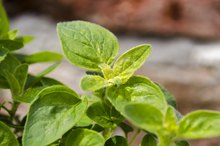What does fact checked mean?
At Healthfully, we strive to deliver objective content that is accurate and up-to-date. Our team periodically reviews articles in order to ensure content quality. The sources cited below consist of evidence from peer-reviewed journals, prominent medical organizations, academic associations, and government data.
- PubMed.gov: Separation of tannins in Rhubarb and its analysis by high performance liquid chromatography-mass spectrometry
- PubMed.gov: Separation of tannins in Rhubarb and its analysis by high performance liquid chromatography-mass spectrometry
- PubMed.gov: Cholesterol lowering effects of rhubarb stalk fiber in hypercholesterolemic men
- PubMed.gov: Cholesterol lowering effects of rhubarb stalk fiber in hypercholesterolemic men
The information contained on this site is for informational purposes only, and should not be used as a substitute for the advice of a professional health care provider. Please check with the appropriate physician regarding health questions and concerns. Although we strive to deliver accurate and up-to-date information, no guarantee to that effect is made.
Weight Loss With Rhubarb
Rhubarb, used for hundreds of years in Asian medicine, has been eaten in the United States as an ingredient in homemade deserts, after being harvested from backyard gardens. However, this leafy vegetable is receiving attention once again for its potential health benefits. In fact, researches have discovered that rhubarb has multiple characteristics that may make it helpful to you in your efforts to lose weight.
Characteristics
Like most vegetables, rhubarb offers a number of nutritional benefits, while at the same time being a relatively low-calorie food choice. Some of its characteristics may contribute to weight loss. Rhubarb contains a type of antioxidant called polyphenols. Included in rhubarb's antioxidant profile are catechins, the same chemicals that give green tea many of its healthy properties. Catechins are thought to aid your body in burning fat by speeding up your metabolism, according to University of Maryland Medical Center 3. Additionally, rhubarb contains a healthy dose of fiber, which contributes to good digestion, absolutely necessary for healthy weight loss.
- Like most vegetables, rhubarb offers a number of nutritional benefits, while at the same time being a relatively low-calorie food choice.
- Additionally, rhubarb contains a healthy dose of fiber, which contributes to good digestion, absolutely necessary for healthy weight loss.
Benefits
When Can Babies Have Rhubarb?
Learn More
Researchers at the U.S. Department of Agricultural, Food and Nutritional Science, at the University of Alberta, Edmonton, found that rhubarb is effective in lowering bad cholesterol, or LDL. The subjects of the study who experienced the health improvements ate 27 g of ground rhubarb fiber once a day for four weeks. Rhubarb's polyphenols are also thought to have anti-cancer properties, according to Sheffield Hallam University.
Eating
Rhubarb is a versatile ingredient. It can take center stage as the main ingredient in a dish, as is the case with deserts like rhubarb pie; stand alone as a side; or be added to garnish other dishes, such as being chopped and added to a fresh salad. Interestingly, researchers at Sheffield Hallam University's Biomedical Research Centre found that baking British rhubarb increased its cancer-fighting abilities. Therefore, its health benefits can be accessed by means of various preparation methods.
- Rhubarb is a versatile ingredient.
- It can take center stage as the main ingredient in a dish, as is the case with deserts like rhubarb pie; stand alone as a side; or be added to garnish other dishes, such as being chopped and added to a fresh salad.
Considerations
Can You Eat Rhubarb Leaves?
Learn More
While rhubarb may contribute to weight loss and have other health benefits, some caution is required before consuming it. Rhubarb's green leaves contain poisonous oxalic acid. The website RuhbarbInfo.com recommends trimming leaves off the edible stalk right away, washing stalks thoroughly prior to eating and supervising children while preparing and eating rhubarb. Additionally, many rhubarb deserts contain large quantities of sugar. So, although rhubarb itself is a healthful food, the overconsumption of sugar along with it may lead to weight gain and/or other health problems.
- While rhubarb may contribute to weight loss and have other health benefits, some caution is required before consuming it.
- So, although rhubarb itself is a healthful food, the overconsumption of sugar along with it may lead to weight gain and/or other health problems.
Warning
Healthy weight loss takes place when multiple lifestyle factors are properly aligned, including regular exercise and a nutritious diet. Because your diet contributes greatly to the overall health of your body, decisions involving your diet should be made carefully, under the supervision of a trained professional, such as a physician or a registered dietitian. Always consult your physician before implementing any changes that may affect your health.
- Healthy weight loss takes place when multiple lifestyle factors are properly aligned, including regular exercise and a nutritious diet.
- Because your diet contributes greatly to the overall health of your body, decisions involving your diet should be made carefully, under the supervision of a trained professional, such as a physician or a registered dietitian.
Related Articles
References
- National Public Radio: Pretty in Pink: Rediscovering Rhubarb
- PubMed.gov: Separation of tannins in Rhubarb and its analysis by high performance liquid chromatography-mass spectrometry
- University of Maryland Medical Center: Green tea
- PubMed.gov: Cholesterol lowering effects of rhubarb stalk fiber in hypercholesterolemic men
- Rhubarb, raw. FoodData Central. U.S. Department of Agriculture. Published April 1, 2019.
- Kaczmarczyk MM, Miller MJ, Freund GG. The health benefits of dietary fiber: Beyond the usual suspects of type 2 diabetes mellitus, cardiovascular disease and colon cancer. Metabolism. 2012;61(8):1058–1066. doi:10.1016/j.metabol.2012.01.017
- Yang J, Wang HP, Zhou L, Xu CF. Effect of dietary fiber on constipation: A meta analysis. World J Gastroenterol. 2012;18(48):7378–7383. doi:10.3748/wjg.v18.i48.7378
- Kunzmann AT, Coleman HG, Huang WY, Kitahara CM, Cantwell MM, Berndt SI. Dietary fiber intake and risk of colorectal cancer and incident and recurrent adenoma in the prostate, lung, colorectal, and ovarian cancer screening trial. Am J Clin Nutr. 2015;102(4):881–890. doi:10.3945/ajcn.115.113282
- Lattimer JM, Haub MD. Effects of dietary fiber and its components on metabolic health. Nutrients. 2010;2(12):1266–1289. doi:10.3390/nu2121266
- Evert AB, Boucher JL, Cypress M, et al. Nutrition therapy recommendations for the management of adults with diabetes. Diabetes Care. 2014;37 Suppl 1:S120-43. doi:10.2337/dc14-S120
- Vitamin K. Fact Sheet for Consumers. National Institutes of Health Office of Dietary Supplements. Updated: February 24, 2020
- Rhubarb. Memorial Sloan Kettering Cancer Center. About Herbs, Botanicals & Other Products. Updated February 15, 2019
- Rhubarb. Natural Medicine Database. Therapeutic Research Center. Updated 12/18/2019
Writer Bio
Nathan Sleger began writing in 2010, as a secondary pursuit to his career as a personal trainer. His writing appears on LIVESTRONG.COM, focusing on fitness. After a nine-year career in human resources, Nathan attended an American College of Sports Medicine certified personal trainer workshop and received his personal trainer certification from the organization in 2009.









